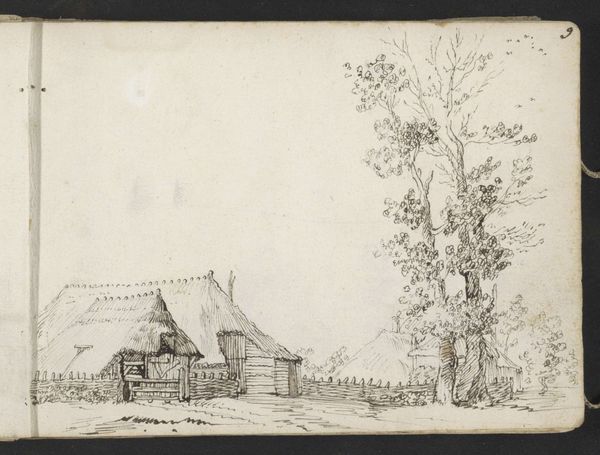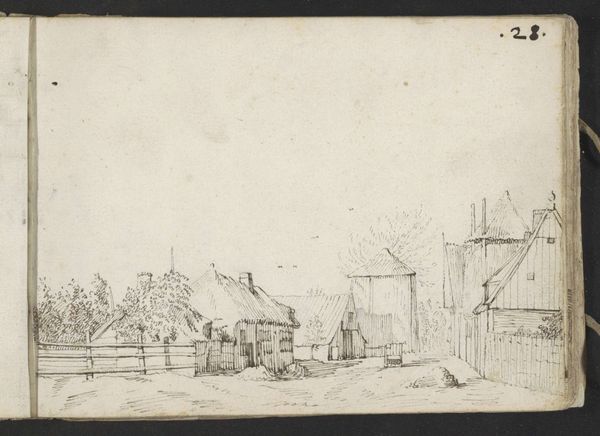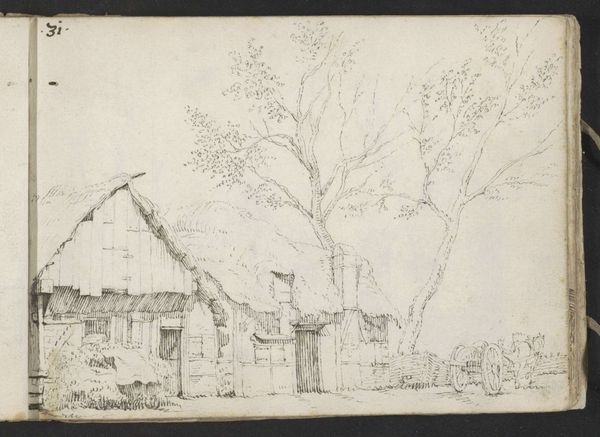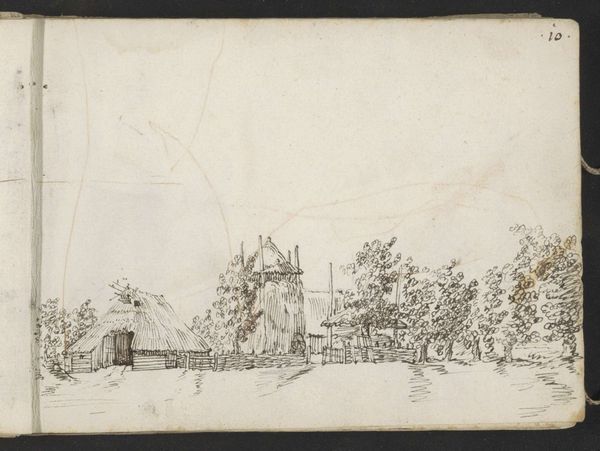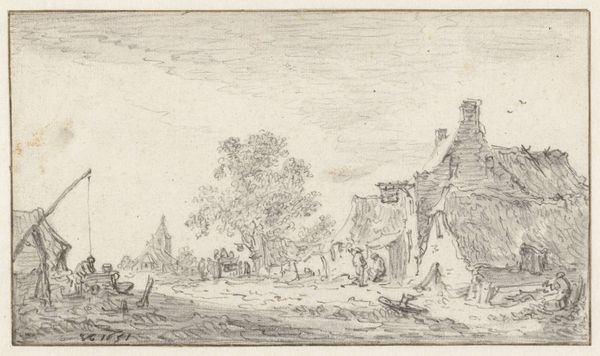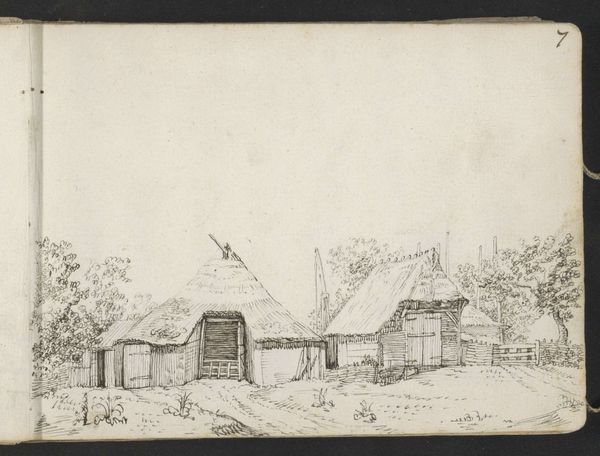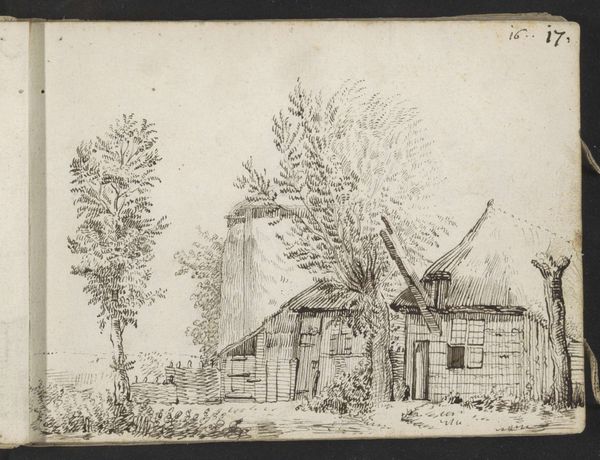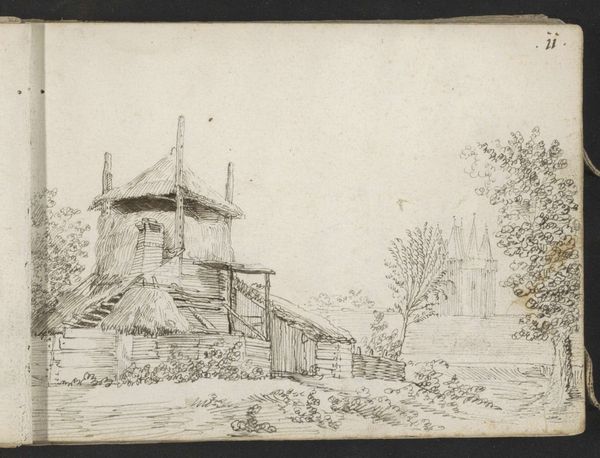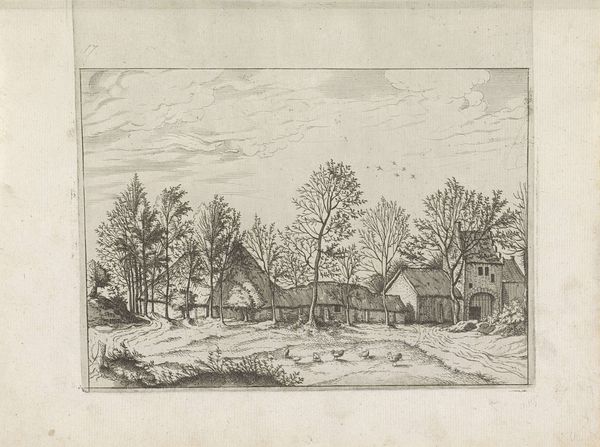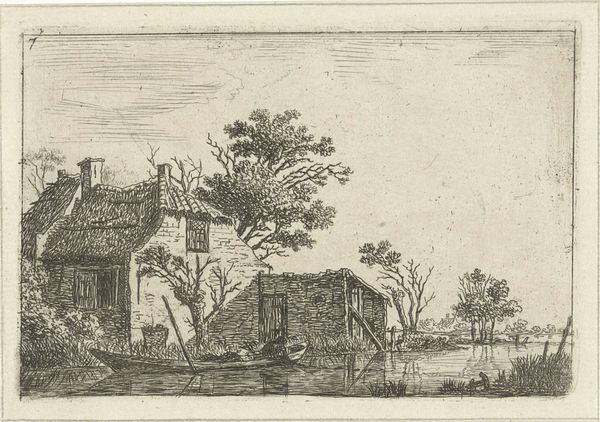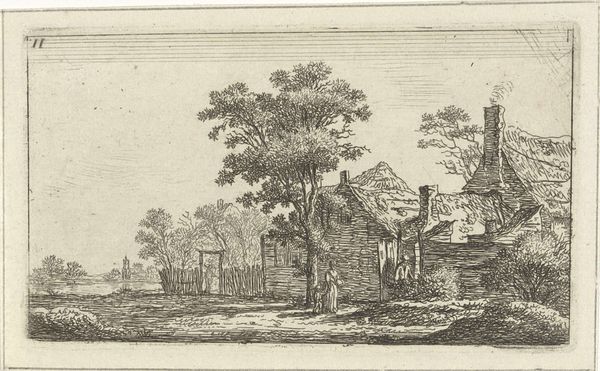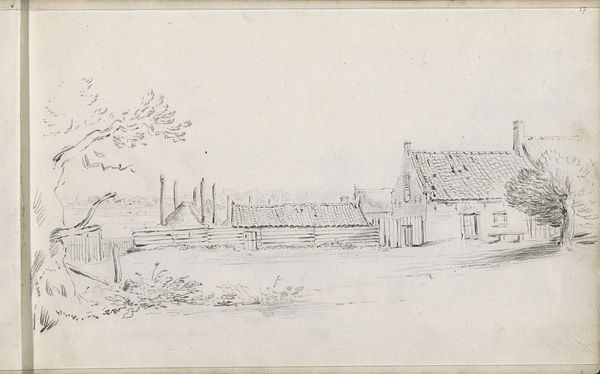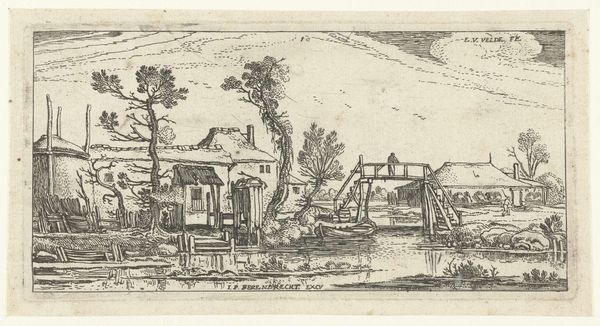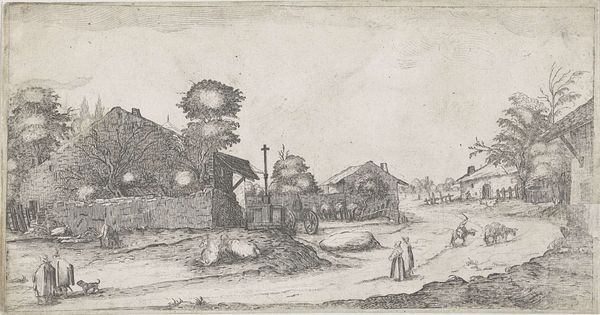
Boerenwoning, een schuur en hooiberg op een dijk buiten Zwolle c. 1631 - 1633
0:00
0:00
gerardteriiborch
Rijksmuseum
drawing, paper, ink, pen
#
drawing
#
quirky sketch
#
dutch-golden-age
#
pen sketch
#
sketch book
#
landscape
#
figuration
#
paper
#
personal sketchbook
#
ink
#
sketchwork
#
pen-ink sketch
#
pen work
#
sketchbook drawing
#
pen
#
genre-painting
#
storyboard and sketchbook work
#
sketchbook art
#
realism
Copyright: Rijks Museum: Open Domain
Gerard ter Borch sketched this Dutch farmstead near Zwolle using pen and ink. Notice the figures, their forms recall classical contrapposto, a stance seen in ancient Greek statues, where the weight shifts to one leg. This motif of balance and movement transcends mere physical representation; it embodies a broader human quest for stability amidst change. In Ter Borch's delicate lines, we see echoes of antique ideals, reborn in the Dutch countryside. This posture resurfaces throughout history, a constant rhythm echoing in art across epochs. It signifies not just the body at rest, but a deeper cultural memory, a striving for harmony that resonates within us all. Consider the image’s emotional resonance, it acts as a conduit connecting the past and present. The viewer feels a deep, subconscious connection, the echoes of history resonating within their mind.
Comments
No comments
Be the first to comment and join the conversation on the ultimate creative platform.
